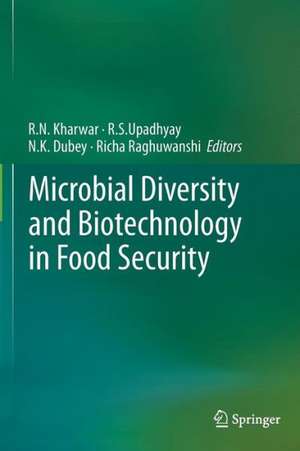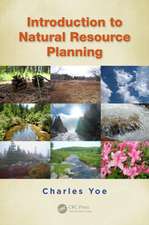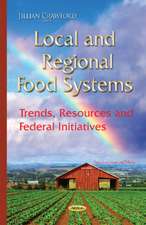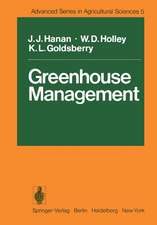Microbial Diversity and Biotechnology in Food Security
Editat de R.N. Kharwar, R.S. Upadhyay, N.K. Dubey, Richa Raghuwanshien Limba Engleză Hardback – 26 iun 2014
This comprehensive volume covers different aspects of microbial biotechnology and its management in sustainable agriculture for food security and improved human health. The book comprises four sections: Endophytes and Mycorrhizae, Microbial Diversity and Plant Protection, Microbial Functions and Biotechnology, and Microbes and the Environment, which contain 53 chapters.
The book examines the aspects on endophytes and mycorrhizae, bioactive compounds, growth promoting microorganisms, disease management with emphasis on biocontrol, genetics of disease resistance, microbial enzymes, advances in potential of microbes and their industrial as well as pharmaceutical applications. In addition, the use of botanicals, and the etiology and management of medicinal and aromatic plants in the post harvest management have been reviewed in greater depth for the benefit of teaching and research community.
The biotechnological developments using microbe potential have enabled us combat the environment and human health problems worldwide in ecofriendly manner. We are sure that this volume will be highly useful to all those concerned with fungi, bacteria, viruses and their biology, including environmental and public health officers and professionals in the field of interest. The volume is an exhaustive coverage of almost all the aspects of microbial biology andbiotechnology.
| Toate formatele și edițiile | Preț | Express |
|---|---|---|
| Paperback (1) | 1240.16 lei 43-57 zile | |
| Springer India – 27 sep 2016 | 1240.16 lei 43-57 zile | |
| Hardback (1) | 1247.88 lei 43-57 zile | |
| Springer India – 26 iun 2014 | 1247.88 lei 43-57 zile |
Preț: 1247.88 lei
Preț vechi: 1521.81 lei
-18% Nou
Puncte Express: 1872
Preț estimativ în valută:
238.79€ • 249.94$ • 198.74£
238.79€ • 249.94$ • 198.74£
Carte tipărită la comandă
Livrare economică 31 martie-14 aprilie
Preluare comenzi: 021 569.72.76
Specificații
ISBN-13: 9788132218005
ISBN-10: 8132218000
Pagini: 636
Ilustrații: XXV, 610 p. 186 illus., 108 illus. in color.
Dimensiuni: 178 x 254 x 39 mm
Greutate: 1.31 kg
Ediția:2014
Editura: Springer India
Colecția Springer
Locul publicării:New Delhi, India
ISBN-10: 8132218000
Pagini: 636
Ilustrații: XXV, 610 p. 186 illus., 108 illus. in color.
Dimensiuni: 178 x 254 x 39 mm
Greutate: 1.31 kg
Ediția:2014
Editura: Springer India
Colecția Springer
Locul publicării:New Delhi, India
Public țintă
ResearchCuprins
Part 1. Endophytes and Mycorrhiza.- 1. Recent Advances in Research on Cannabis Sativa L. Endophytes and their Prospect for the Pharmaceutical Industry.- 2. Endophytic Fungi from Brazilian Tropical Hosts and their Biotechnological Applications.- 3. Diversity and Bio-potential of Endophytic Fungal Flora Isolated from Eight Medicinal Plants of Uttar Pradesh, India.- 4. Unlocking the Myriad Benefits of Endophytes: An Overview.- 5. Fungal Endophytes: An Amazing and Hidden Source of Cytotoxic Compounds.- 6. Diversity and Bioactivity of Endophytic Fungi from Nothapodyte Foetida (Wt.) Sleumer and Hypericum Mysorense Heyne.- 7. Diversity of Arbuscular Mycorrhizal Fungi in Field and Trap Cultures from Rhizosphere Soils of Flemingia Vestita Benth. ex Baker.- 8. Molecular Identification and Characterization of Taxol Producing Colletotrichum Gloeosporioides from Moringa Oleifera Linn.- 9. Linking Mycorrhizal Technology with Medicinal Plant Secondary Metabolites.- 10. Ecology of Arbuscular Mycorrhizal Fungi.- Part 2. Microbial Diversity and Plant Protection.- 11. Screening of Brassica Rapa L. var. Yellow Sarson Genotypes against Downy Mildew and Alternaria Blight.- 12. Mycofloristics of Some Forest Localities in Khammam – Some New Additions to the Fungi of A.P., India.- 13. The Gomphus Paradox of Meghalaya: Wild Edible Fungi or a Poisonous Mushroom?.- 14. Identification of Tomato Leaf Curl Virus Infecting Acalypha Indica: An Ethno Medicinal Weed in North-Eastern U.P.- 15. Occurrence of Antiviral Systemic Resistance Inducer in Pseuderanthemum Bicolor Radlk.- Its Mode of Action and Biophysicochemical Properties.- 16. An Impact of Seed Priming on Disease Resistance - A Review.- 17. Occurrence of Stone Fruit Yellows Phytoplasma Disease (“Ca. Phytoplasma Prunorum”) in Hungary and Central-Europe.- 18. Prevention of Virus Infection and Multiplication by Inducing Virus Interfering Agent(s) in Treated Crop Plants under Field Conditions.- 19. Biocontrol of PhytopathogenicFungi of Rice Crop using Plant Growth Promoting Rhizobacteria.- 20. Incidence and Preliminary Control of Blast Disease of Rice in Southwest Nigeria.- 21. Evaluation of Biotic and Abiotic Factors for Production of Healthy Apple (Malus x Domestica) Seedling.- 22. Evaluation of Antifungal Activity of Metarhizium anisopliae against Plant Phytopathogenic Fungi.- 23. Antifungal Activity of Plant Growth Promoting Rhizobacteria against Fusarium Oxysporum and Phoma sp. of Cucurbitaceae.- 24. Integrated Management of Web Blight (Rhizoctonia Solani Kühn) of French Bean.- 25. Role of Antagonistic Microbes in Management of Phytopathogenic Fungi of Some Important Crops.- 26. In Vitro Evaluation of PGPR Strains for Their Biocontrol Potential against Fungal Pathogens.- 27. Pathogenicity, Ecology and Genetic Diversity of the Fusarium Spp. associated with an Emerging Bakanae Disease of Rice (Oryza Sativa L.) in India.- 28. Development of Novel Molecules for the Control of Plant Pathogenic Fungi in Agriculture.- 29. Sustainable Agriculture and Plant Growth Promoting Rhizobacteria.- 30. Biochemical Activity of Ocimum Gratissimum Essential Oil against Fruit Rotting Fungi Penicillium Expansum and Penicillium Digitatum.- 31. Seed Quality Status of Polymer Coated BT Cotton (Gossypium sp.) during Storage under Coastal Environment.- 32. Viruses Infecting Cucurbita Pepo: Current Status and Management.- 33. Plant Growth Promoting Rhizobacteria in Vegetable Disease Management.- 34. Biological Control of Bacterial Wilt Disease Causing Pathogens: A Sustainable Approach for Increasing Crop Production.- 35. Bio-fungicides: Best Alternative for Sustainable Food Security and Eco-System.- 36. PCR Amplification, Sequencing and Insilico Characterization of Pectin Lyase Genes from AspergillusflavusNIICC8142.- 37. Antifungal Activity of Agave Species.- 38. Production of Extracellular Phytate Hydrolyzing Enzymes by Soil Fungi.- 39. Isolation, Characterization and Production of Bacterial Laccase fromBacillus sp.- 40. Optimization of Protease Enzyme Production by the Halo-tolerant Vibrio Alginolyticus Isolated from Marine Sources.- 41. Antimicrobial Activity of Some Cyanobacteria.- 42. Reaction of Chickpea Varieties to Macrophomina Phaseolina and their Effect on Peroxidase Activity.- 43. Purification and Characterisation of a Novel Thermostable β-Amylase from - Amylase from Aspergillus Foetus MTCC-508.- Aspergillus Foetus MTCC-508.- 44. Effect of Euphorbia Pulcherrima Leaf and Inflorescence Extract on Spore Germination of Alternaria Solani.- 45. Fungal and Mycotoxin Contamination of Herbal Raw Materials and Prospects of Higher Plant Products as Plant Based Preservatives during Post Harvest Processing.- 46. Isolation of Non Pathogenic Strain of Ballistosporous Yeast Sporobolomyces Salmonicolor from House Mouse Mus Musculus (Rodentia: Muridae).- Part 4. Microbes and Environment.- 47. Fungal Toxins and their Impact on Living Systems.- 48. Bacterial Degradation of Some Organophosphate Compounds (Chlorpyrifos, Parathion, Glyphosate, Coumaphos, Monocrotophos and Malathion).- 49. Biodiversity and Conservation of Forest Fungi of Central India.- 50. Spatio-temporal Variations in Microbial Mediated Nitrogen (N) Release Under N Fertilization Experiment from Banaras Hindu University, India.- 51. Influence of Crop-rotation and Intercropping on Microbial Populations in Cultivated Fields under Different Organic Amendments.- 52. Leaf Litter Breakdown by two Earthworm Species - Eisenia Foetida (Exotic) and Perionyx Excavatus (Indigenous) under Laboratory Condition.- 53. Chilli Anthracnose: A Review on Causal Organism, Resistance Source and Mapping of Gene.
Notă biografică
Prof. R.N. Kharwar is currently serving as a Professor in the Department of Botany, Banaras Hindu University, Varanasi. More than 50 research articles, 3 reviews in international journals and 6 book chapters are to his credit. He is a fellow of MSI and IPS and recipient of Shome Memorial Lecture Award, 2012. His core areas of research include fungal and actinobacterial endophytes diversity, ecology, bioactive molecules, antioxidants and myconanotechnology. Other areas of interest include epigenetic modulations for cryptic and enhanced metabolites production from endophytes.
Prof. R.S. Upadhyay received his M.Sc. (1976) and Ph.D. (1980) degrees from Banaras Hindu University, Varanasi. His main focus on research has been on biological control of plant pathogens, programmed plant cell death in response to pathogens, bioremediation of toxic effluents, induced resistance in plants and their immunization, chitinase production, mycorrhizal technology for reclamation of wastelands, and molecular basis of plant-microbe interaction. He is recipient of five national awards in the area of science, one conferred by the Prime Minister of India. In addition, he has also worked as a visiting scientist to The Royal Society, London, Research Associate of NIH, USA and INSA- JSPS, Japan.
Prof N.K. Dubey has significantly contributed to the important area of botanical pesticides. He has formulated several novel plant based preservatives that exhibit significant potency in control of biodeterioration of food from fungi, mycotoxins and insects as well as from lipid peroxidation. He has filed 4 patents, published 170 research papers and review articles, 5 books and is a recipient of several awards including Prof M J Narasimhan award and Young Scientist award. He acted as a Chairperson, Session Coordinator and Key speaker in 9th ICPP 2008, held during Aug 24-29, 2008, Torino, Italy.
Dr. Richa Raghuvanshi is Assistant Professor at the Department of Botany, Banaras Hindu University, Varanasi, since 2005. Her research is focused on microbes as biofertilizers and biocontrol agents in cultivated crops and Indian medicinal plants. She has published 28 research papers, book chapters and also edited one book.
Prof. R.S. Upadhyay received his M.Sc. (1976) and Ph.D. (1980) degrees from Banaras Hindu University, Varanasi. His main focus on research has been on biological control of plant pathogens, programmed plant cell death in response to pathogens, bioremediation of toxic effluents, induced resistance in plants and their immunization, chitinase production, mycorrhizal technology for reclamation of wastelands, and molecular basis of plant-microbe interaction. He is recipient of five national awards in the area of science, one conferred by the Prime Minister of India. In addition, he has also worked as a visiting scientist to The Royal Society, London, Research Associate of NIH, USA and INSA- JSPS, Japan.
Prof N.K. Dubey has significantly contributed to the important area of botanical pesticides. He has formulated several novel plant based preservatives that exhibit significant potency in control of biodeterioration of food from fungi, mycotoxins and insects as well as from lipid peroxidation. He has filed 4 patents, published 170 research papers and review articles, 5 books and is a recipient of several awards including Prof M J Narasimhan award and Young Scientist award. He acted as a Chairperson, Session Coordinator and Key speaker in 9th ICPP 2008, held during Aug 24-29, 2008, Torino, Italy.
Dr. Richa Raghuvanshi is Assistant Professor at the Department of Botany, Banaras Hindu University, Varanasi, since 2005. Her research is focused on microbes as biofertilizers and biocontrol agents in cultivated crops and Indian medicinal plants. She has published 28 research papers, book chapters and also edited one book.
Textul de pe ultima copertă
The roles of microbes in agriculture, industry and environment have been the point of interest since long time for their potential exploitation. Although only a fraction of microbial diversity was accessed by microbiologists earlier for harnessing them owing to limited techniques available. The molecular techniques have opened new vistas to access the wide field of the unexplored microbes and their exploitation for useful genes and novel metabolites. Sincere efforts have been made in biotechnology using microbes leading to improve our life with respect to agriculture and people health.
This comprehensive volume covers different aspects of microbial biotechnology and its management in sustainable agriculture for food security and improved human health. The book comprises four sections: Endophytes and Mycorrhizae, Microbial Diversity and Plant Protection, Microbial Functions and Biotechnology, and Microbes and the Environment, which contain 53 chapters.
The book examines the aspects on endophytes and mycorrhizae, bioactive compounds, growth promoting microorganisms, disease management with emphasis on biocontrol, genetics of disease resistance, microbial enzymes, advances in potential of microbes and their industrial as well as pharmaceutical applications. In addition, the use of botanicals, and the etiology and management of medicinal and aromatic plants in the post harvest management have been reviewed in greater depth for the benefit of teaching and research community.
The biotechnological developments using microbe potential have enabled us combat the environment and human health problems worldwide in ecofriendly manner. We are sure that this volume will be highly useful to all those concerned with fungi, bacteria, viruses and their biology, including environmental and public health officers and professionals in the field of interest. The volume is an exhaustive coverage of almost all the aspects of microbial biology andbiotechnology.
This comprehensive volume covers different aspects of microbial biotechnology and its management in sustainable agriculture for food security and improved human health. The book comprises four sections: Endophytes and Mycorrhizae, Microbial Diversity and Plant Protection, Microbial Functions and Biotechnology, and Microbes and the Environment, which contain 53 chapters.
The book examines the aspects on endophytes and mycorrhizae, bioactive compounds, growth promoting microorganisms, disease management with emphasis on biocontrol, genetics of disease resistance, microbial enzymes, advances in potential of microbes and their industrial as well as pharmaceutical applications. In addition, the use of botanicals, and the etiology and management of medicinal and aromatic plants in the post harvest management have been reviewed in greater depth for the benefit of teaching and research community.
The biotechnological developments using microbe potential have enabled us combat the environment and human health problems worldwide in ecofriendly manner. We are sure that this volume will be highly useful to all those concerned with fungi, bacteria, viruses and their biology, including environmental and public health officers and professionals in the field of interest. The volume is an exhaustive coverage of almost all the aspects of microbial biology andbiotechnology.
Caracteristici
Discusses the application and importance of microbes in crop productivity and disease prevention to achieve global food security Comprises different areas of research from structural, metabolomics biocontrol to nanotechnology Holds a special relevance in the present time as food security is a major concern in both developed and developing countries While addressing the issue of food security, the book provides holistic solutions to tackle the problem Includes supplementary material: sn.pub/extras











